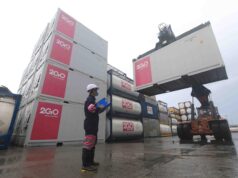SUBIC BAY FREEPORT — About 100 key personnel of the Subic Bay Metropolitan Authority (SBMA), assisted by experts from the Development Academy of the Philippines (DAP), are re-assessing the agency’s various processes to identify possible vulnerabilities to corruption.
SBMA human resources management chief Lolita Mallari said the two-day “corruption sensitivity” workshop that began here on Wednesday is expected to firm up an anti-corruption culture among employees of the agency.
DAP, established in 1973 and serving as the country’s National Productivity Organization (NPO), fulfills the country’s commitment to the Asian Productivity Organization (APO) by pursuing innovations in governance, organization development, and productivity.
Mallari said they are taking on a different approach with the ongoing workshop, as the SBMA employees themselves will steer the discussions, instead of just having speakers mainly sharing their opinion on the issue.
“Successfully firming up the SBMA’s safeguards against corruption rests mainly on its workforce, who really understands the organization’s ins and outs,” Mallari said.
“We are fortunate that we have (DAP) dean Gloria Mercado and her team with us to help develop an anti-corruption framework that is specifically tailored to the SBMA organizational structure,” Mallari added.
Mercado affirmed that DAP’s role in SBMA’s fight against corruption would not be to discuss what corruption is about.
“We let the participants surface the issues and processes within their institution that are getting prone to corruption,” said Mercado. “At the end of the day, there should be a common understanding within the SBMA—what are their vulnerable points in terms of corruption.”
Mercado stressed that it is only after the workshop that she, along with DAP senior officials who traveled all the way from their Pasig headquarters to this free port, will put in their expertise on the subject.
“The issues that will be brought up in the workshop, these we will put into the context of the anti-corruption framework,” she said. “If after the workshop, the SBMA realizes the value of the program and the need for its people for further training, then we could customize a program specifically for them.”
In relation to this, Mercado bared DAP’s plan to transform the corruption awareness workshop from a graduate certificate course into a degree program to be called “Masters in Public Management, Major in Integrity Development in Governance (MPMID).” The new program will start in February 2011.
“If the SBMA deems it necessary, the DAP faculty could hold a special class here, where other institutions in and around the Subic Bay Freeport could avail of the program,” Mercado said.
“DAP, by the way, doesn’t offer courses that are already in the market. We only offer courses that are innovations and do not exist in the educational institutions,” she added.
Mercado, who holds a masters degree in national security administration from the National Defense College of the Philippines, said that fighting corruption has been her personal advocacy since her recruitment in 1978 into the Medium and Small Industry Coordination Action Program (MASICAP) of former Sen. Vicente Paterno, the founding chairman.
As one of the few who were pulled out straight from fourth year college to promote small and medium enterprises in the far-flung areas of the country, Bukidnon in her case, Mercado wore “the missionary seal of public service.”
“MASICAP was aimed to produce a new crop of technocrats who wouldn’t accept any kind of gift from our clients,” she said. “It was that kind of ethics and love for our country that we carry until now.”
SBMA human resources management chief Lolita Mallari said the two-day “corruption sensitivity” workshop that began here on Wednesday is expected to firm up an anti-corruption culture among employees of the agency.
DAP, established in 1973 and serving as the country’s National Productivity Organization (NPO), fulfills the country’s commitment to the Asian Productivity Organization (APO) by pursuing innovations in governance, organization development, and productivity.
Mallari said they are taking on a different approach with the ongoing workshop, as the SBMA employees themselves will steer the discussions, instead of just having speakers mainly sharing their opinion on the issue.
“Successfully firming up the SBMA’s safeguards against corruption rests mainly on its workforce, who really understands the organization’s ins and outs,” Mallari said.
“We are fortunate that we have (DAP) dean Gloria Mercado and her team with us to help develop an anti-corruption framework that is specifically tailored to the SBMA organizational structure,” Mallari added.
Mercado affirmed that DAP’s role in SBMA’s fight against corruption would not be to discuss what corruption is about.
“We let the participants surface the issues and processes within their institution that are getting prone to corruption,” said Mercado. “At the end of the day, there should be a common understanding within the SBMA—what are their vulnerable points in terms of corruption.”
Mercado stressed that it is only after the workshop that she, along with DAP senior officials who traveled all the way from their Pasig headquarters to this free port, will put in their expertise on the subject.
“The issues that will be brought up in the workshop, these we will put into the context of the anti-corruption framework,” she said. “If after the workshop, the SBMA realizes the value of the program and the need for its people for further training, then we could customize a program specifically for them.”
In relation to this, Mercado bared DAP’s plan to transform the corruption awareness workshop from a graduate certificate course into a degree program to be called “Masters in Public Management, Major in Integrity Development in Governance (MPMID).” The new program will start in February 2011.
“If the SBMA deems it necessary, the DAP faculty could hold a special class here, where other institutions in and around the Subic Bay Freeport could avail of the program,” Mercado said.
“DAP, by the way, doesn’t offer courses that are already in the market. We only offer courses that are innovations and do not exist in the educational institutions,” she added.
Mercado, who holds a masters degree in national security administration from the National Defense College of the Philippines, said that fighting corruption has been her personal advocacy since her recruitment in 1978 into the Medium and Small Industry Coordination Action Program (MASICAP) of former Sen. Vicente Paterno, the founding chairman.
As one of the few who were pulled out straight from fourth year college to promote small and medium enterprises in the far-flung areas of the country, Bukidnon in her case, Mercado wore “the missionary seal of public service.”
“MASICAP was aimed to produce a new crop of technocrats who wouldn’t accept any kind of gift from our clients,” she said. “It was that kind of ethics and love for our country that we carry until now.”



